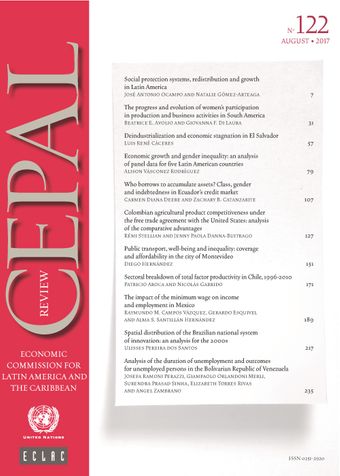-
The impact of the minimum wage on income and employment in Mexico
- Source: CEPAL Review, Volume 2017, Issue 122, août 2017, p. 189 - 216
- Espagnol
-
- 05 janv. 2018
Abstract
This article analyses the effects of a rise in the minimum wage on wages and employment in Mexico. The source of variation is the equalization in late 2012 of the minimum wage in two areas of the country. Using the National Occupation and Employment Survey (ENOE), econometric analyses are performed of cross-section and individual panel data. The results of the first indicate that, on average, the hourly wage in zone B rose by between 1.6% and 2.6% for workers overall and between 1.8% and 3.3% for wage workers. The panel analysis yields similar results. Although the cross-section analysis does not show an impact in terms of employment, the panel data indicate that the probability of being an informal (formal) worker falls (rises) among those affected by the wage rise policy.





